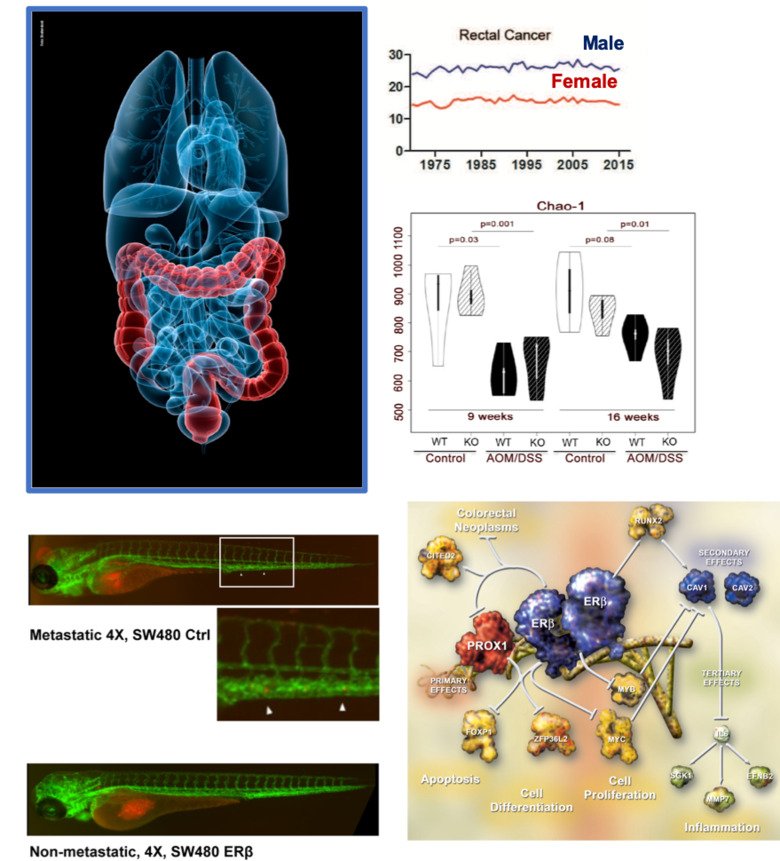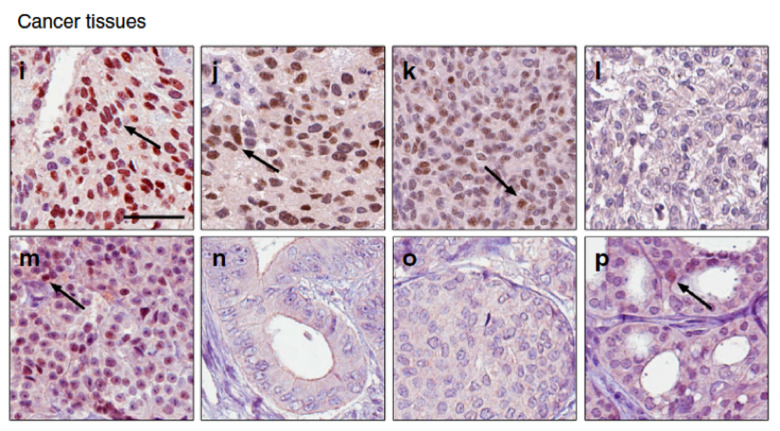Hormone signalling and non-coding RNAs in cancer - Cecilia Williams
Our research focuses on understanding key molecular mechanisms in cancer. Each cancer is unique and there is an urgent need for precision medicine, diagnostic tools and novel treatment approaches to reduce cancer mortality. We use a combination of large-scale omics together with focused mechanistic experiments and in vivo studies.

Our goal is to understand critical cancer pathways so that we can suggest better cancer treatments and preventive approaches, as well as biomarkers, to be developed for clinical use.
Non-coding RNA molecules are RNAs that do not encode for proteins. The family includes microRNAs which regulate translation of target mRNAs and long non-coding RNAs (lncRNAs) which can have active functions such as 3D-RNA molecules. Both types can function as biomarkers or therapeutic targets. We study how non-coding RNAs are impacted by cell differentiation, hormone signalling and cancer, and their corresponding functions.
Oestrogen signalling and sex differences in cancer
Some cancers (such as colorectal and liver) are more common in men, and others (breast and thyroid) are more common in women. We explore how the hormone oestrogen influences this and, for example, increases the growth of breast cancer while protecting against colorectal cancer.

The effect of oestrogen is mediated by three oestrogen receptors: ERα, ERβ and GPER1. These are expressed to various extent in different tissues in both women and men. ERα and ERβ are ligand-activated nuclear receptors and are excellent therapeutic targets. GPER1 is a G protein-coupled transmembrane receptor with promising therapeutic potential. Using technologies like RNA-Seq, ChIP-Seq, microbiota analysis, and proteomics, along with cell models, tissue-specific knockouts and clinical samples, we explore how these three receptors, and their ligands such as dietary oestrogens or endocrine disruptors, impact cancer. We are interested in understanding how this contributes to sex differences in cancer incidences and outcomes, as well as the intricate connection with diet/obesity, inflammation and carcinogenesis. Our goal is to contribute to better biomarkers, therapeutics and preventive approaches.
Group members
Cecilia Williams
Group leaderAmena Archer
Affiliated researcherMadeleine Birgersson
Research AssistantLina Stepanauskaite
Phd StudentSelected publications
High-fat diet and estrogen modulate the gut microbiota in a sex-dependent manner in mice.
Hases L, Stepanauskaite L, Birgersson M, Brusselaers N, Schuppe-Koistinen I, Archer A, Engstrand L, Williams C
Commun Biol 2023 Jan;6(1):20
Genome-wide estrogen receptor β chromatin binding in human colon cancer cells reveals its tumor suppressor activity.
Indukuri R, Jafferali MH, Song D, Damdimopoulos A, Hases L, Zhao C, Archer A, Williams C
Int J Cancer 2021 Mar;(22)
Menopausal hormone therapies and risk of colorectal cancer: a Swedish matched-cohort study.
Liu Q, Simin J, Debelius J, Fall K, Sadr-Azodi O, Engstrand L, Williams C, Brusselaers N
Aliment Pharmacol Ther 2021 Apr;15
The Importance of Sex in the Discovery of Colorectal Cancer Prognostic Biomarkers.
Hases L, Ibrahim A, Chen X, Liu Y, Hartman J, Williams C
Int J Mol Sci 2021 Jan;22(3):1354
Intestinal estrogen receptor beta suppresses colon inflammation and tumorigenesis in both sexes.
Hases L, Indukuri R, Birgersson M, Nguyen-Vu T, Lozano R, Saxena A, Hartman J, Frasor J, Gustafsson JÅ, Katajisto P, Archer A, Williams C
Cancer Lett 2020 11;492:54-62
High-fat diet and estrogen impacts the colon and its transcriptome in a sex-dependent manner.
Hases L, Archer A, Indukuri R, Birgersson M, Savva C, Korach-André M, Williams C
Sci Rep 2020 09;10(1):16160
A miR-206 regulated gene landscape enhances mammary epithelial differentiation.
Wang J, Aydoğdu E, Mukhopadhyay S, Helguero LA, Williams C
J. Cell. Physiol. 2019 Dec;234(12):22220-22233
Colitis-induced colorectal cancer and intestinal epithelial estrogen receptor beta impact gut microbiota diversity.
Ibrahim A, Hugerth LW, Hases L, Saxena A, Seifert M, Thomas Q, et al
Int. J. Cancer 2019 06;144(12):3086-3098
A Comprehensive Pan-Cancer Molecular Study of Gynecologic and Breast Cancers.
Berger AC, Korkut A, Kanchi RS, Hegde AM, Lenoir W, Liu W, et al
Cancer Cell 2018 04;33(4):690-705.e9
Insufficient antibody validation challenges oestrogen receptor beta research.
Andersson S, Sundberg M, Pristovsek N, Ibrahim A, Jonsson P, Katona B, et al
Nat Commun 2017 06;8():15840
Research Networks
- Pan-Gynecologic Cancers Analysis Working Group, The Cancer Genome Atlas
- VR Research environment Interdisciplinary research (QuantumSense 2018-2025)
- American Association for Cancer Research (AACR)
Prizes/Awards
- Career Development Award (VINNOVA/ Marie-Curie Actions GROWTH 291795, Cecilia Williams, 2014-2018)
- National Cancer Institute / NIH USA (R01 CA172437, 2013-2019)
